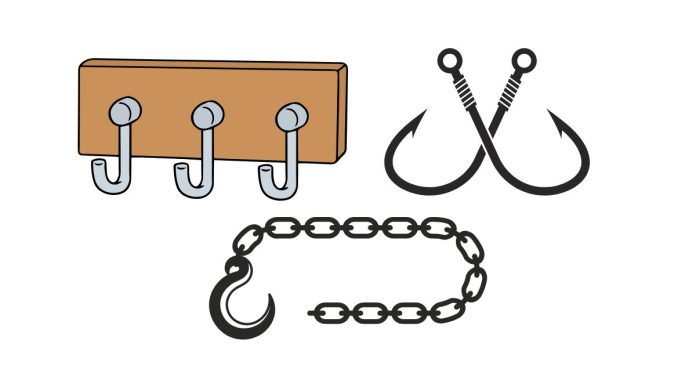In modern conversations, the phrase “hook up” is often used, but its meaning can vary depending on the context. While some might associate it with casual interactions or romantic encounters, others may use it to describe a simple meeting or connection. So, what does the phrase “hook up” really mean? Let’s break it down, exploring its different interpretations and uses.
The Evolution of “Hook Up”
The phrase “hook up” has evolved over time. Originally, the term was tied to more neutral connotations, often relating to connecting something, like hooking up a device or making a physical connection. However, in recent years, its meaning has shifted and expanded, especially in social and romantic contexts.
Today, the term is commonly used to describe anything from casual meetings to physical encounters. In some cases, it may refer to something as innocent as grabbing a coffee with a friend, while in other cases, it could imply a more intimate, sexual interaction.
Common Meanings of “Hook Up”
- Casual Romantic or Sexual Encounter
The most widely recognized meaning of “hook up” in modern slang refers to a casual, often spontaneous, romantic or sexual encounter. This could mean anything from a quick kiss to a one-night stand. In this context, it doesn’t necessarily indicate a commitment or emotional attachment. It’s often used to describe a non-serious or fleeting connection between two people.
- Example: “I heard they hooked up last weekend at the party.”
- Connecting or Meeting Up
In a less intimate or romantic context, “hook up” can simply mean meeting or connecting with someone. This could be for a variety of reasons, such as hanging out with friends or networking. It’s a more neutral way of saying that two people have made plans to get together, without any implication of romance.
- Example: “Let’s hook up for coffee tomorrow and catch up!”
- Making Arrangements or Coordinating
“Hooking up” can also mean arranging or coordinating something, often in a way that helps others. This could involve setting up equipment or getting people together for a particular purpose.
- Example: “I can hook you up with the best tech support guy in the city.”
- Sharing or Providing Resources
In some cases, the phrase “hook up” can mean providing someone with something they need or connecting them with a particular resource. This could range from offering advice to providing access to exclusive opportunities, services, or items.
- Example: “If you need tickets for the concert, I can hook you up.”
The Casual Nature of “Hook Up”
What makes the phrase “hook up” particularly interesting is its versatility. The meaning often depends on the tone, the relationship between the people involved, and the context in which it’s used. For example, if someone says, “We hooked up last night,” the assumption might be that it was a sexual encounter. On the other hand, if the same phrase is used by two friends planning to hang out, it might just mean meeting up.
This duality makes “hook up” an interesting phrase that’s open to interpretation, and part of its modern appeal lies in its casual, nonchalant nature.
Cultural and Regional Variations
It’s worth noting that “hook up” can mean different things in different cultures or regions. In some places, it may exclusively refer to a romantic or sexual interaction, while in others, it might be used more broadly to describe any casual meeting or connection. For example, younger generations in the U.S. tend to associate “hooking up” with sexual or romantic encounters, whereas older generations or people from different countries may use it in a more general sense.
This variation in meaning makes it important to understand the context in which “hook up” is being used, especially in cross-cultural conversations or when interacting with people from different backgrounds.
The Implications of “Hooking Up”
While “hooking up” is often used in a carefree, lighthearted manner, it can sometimes carry implications about personal values or expectations. For example, people who are interested in casual relationships may use the term to describe their encounters without intending to form a long-term commitment. However, in certain relationships, the phrase could suggest more profound emotional connections, depending on the individuals involved.
For some, the idea of “hooking up” may carry negative connotations, especially when used in the context of fleeting or impersonal encounters. On the other hand, others may embrace it as a way to explore physical intimacy or simply have fun without the pressure of a traditional relationship.
Is “Hooking Up” Always Casual?
One of the most interesting aspects of “hooking up” is that, in some cases, it doesn’t have to be entirely casual. As societal norms around relationships and intimacy evolve, people may find themselves in situations where they hook up in more meaningful or prolonged ways. For some, it could serve as the beginning of a romantic connection or an ongoing casual relationship.
Ultimately, how “hooking up” is perceived depends on the individuals involved and what they’re looking for in the interaction. Some may use the term to describe a purely physical encounter, while others may use it to refer to the early stages of a deeper emotional connection.
The phrase “hook up” has become a ubiquitous part of modern slang, but its meaning is far from straightforward. Whether referring to a casual sexual encounter, a simple meeting between friends, or making arrangements, “hooking up” has a range of interpretations that depend on the context. As language evolves and societal attitudes toward relationships continue to shift, the phrase will likely remain fluid, taking on different meanings depending on the situation and the people involved.
So, the next time you hear someone say they “hooked up,” remember that it might not always mean what you think—understanding the context is key to grasping its true meaning.


